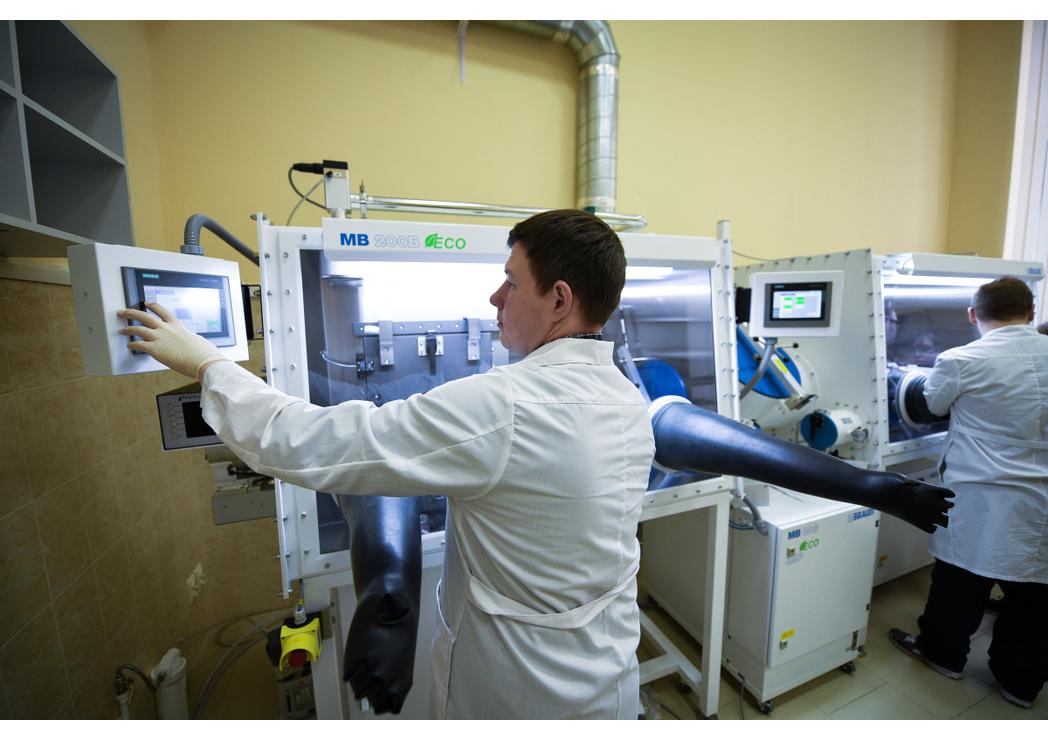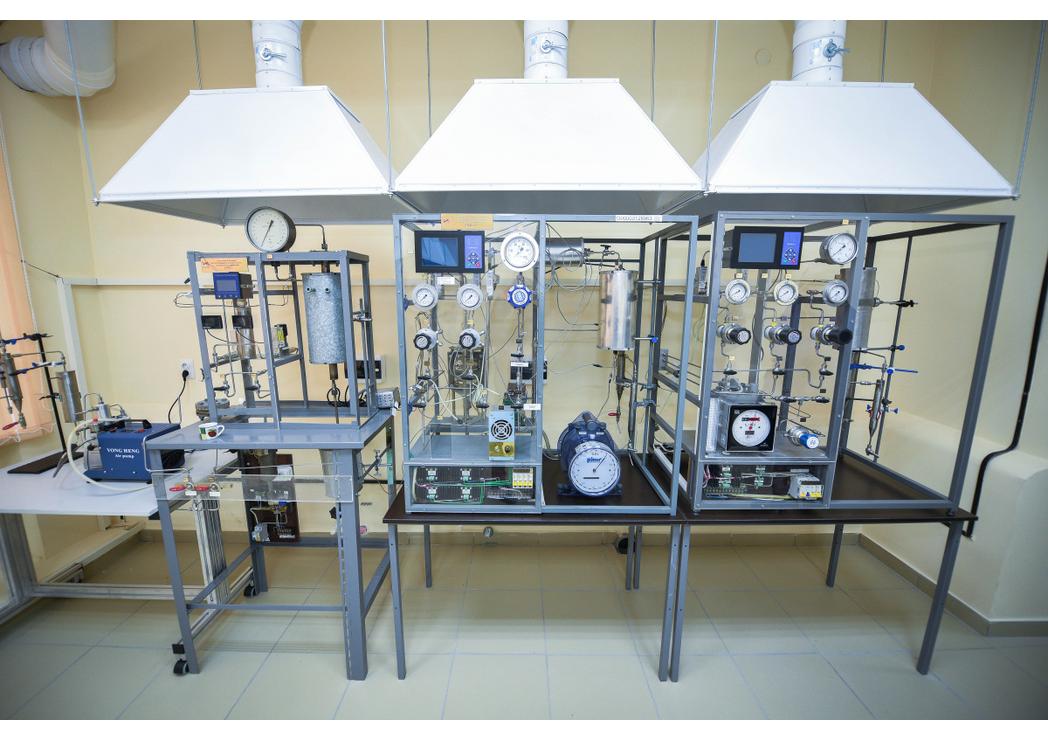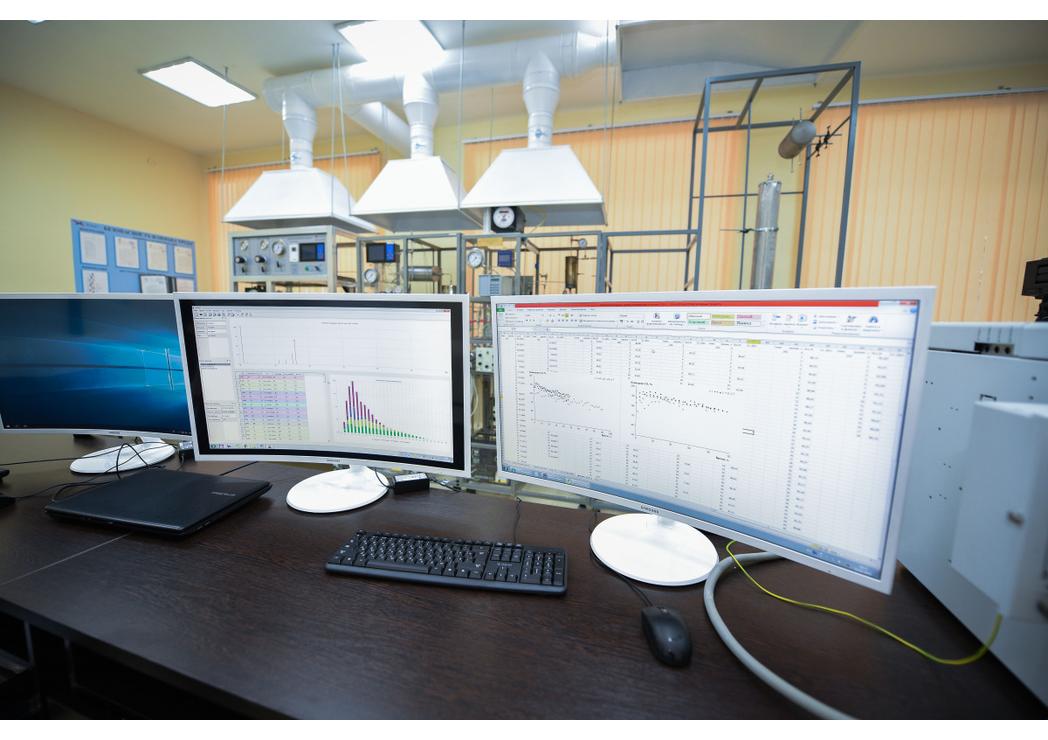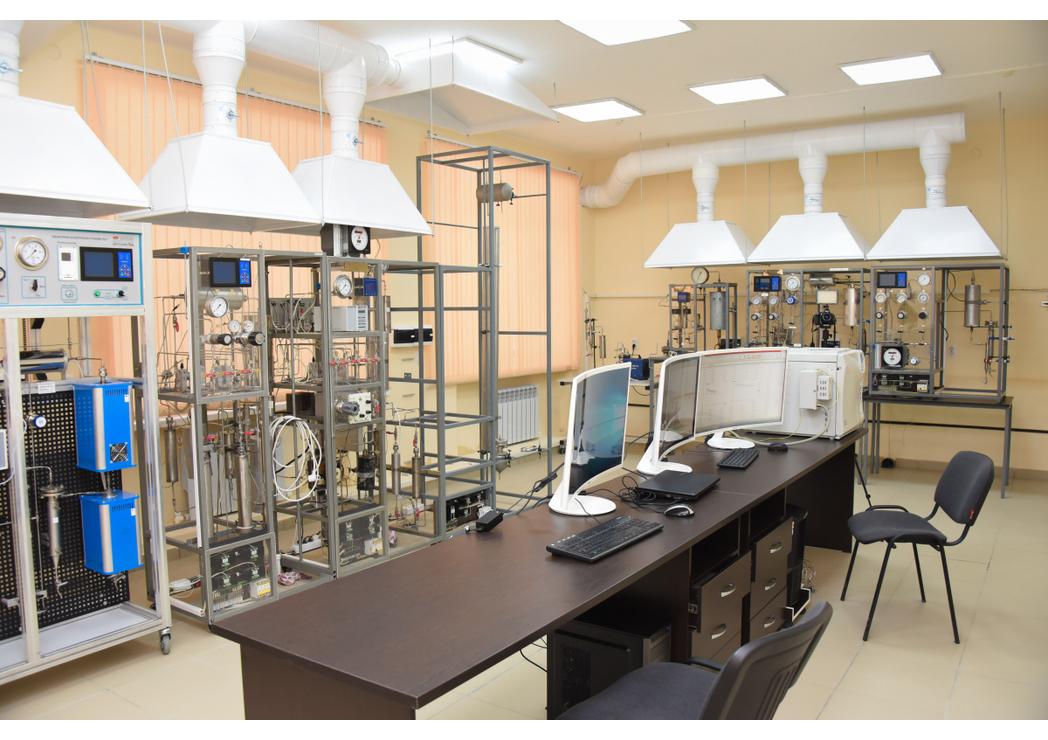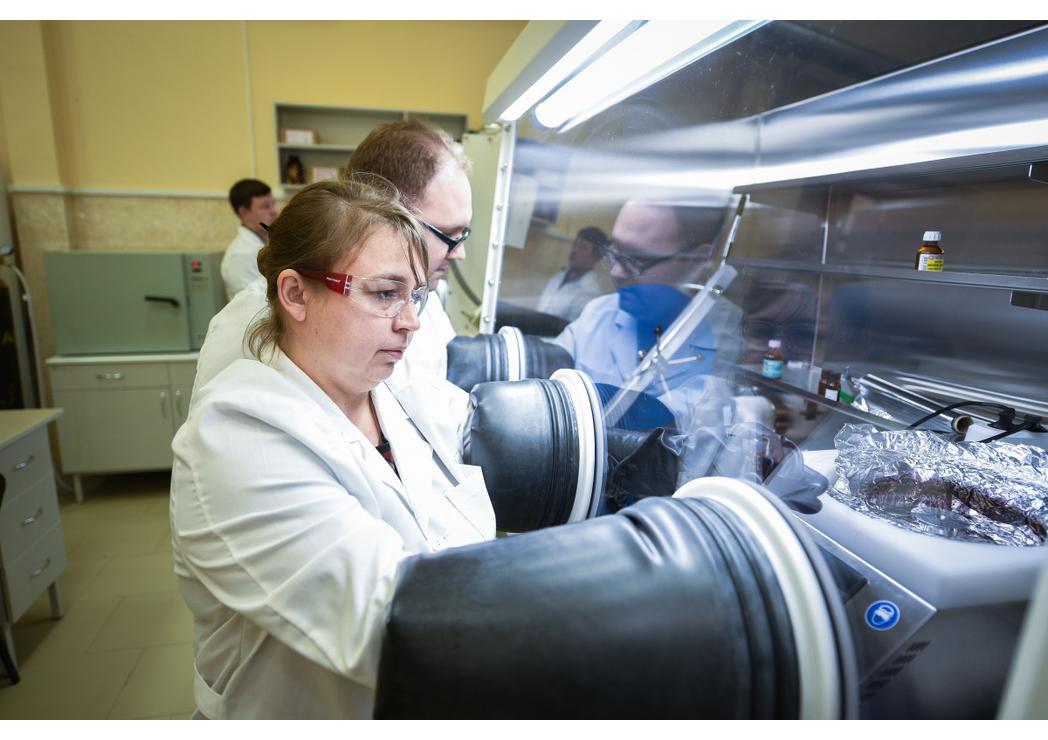The events dedicated to the Day of Russian Science, which the country celebrated on February 8, were held at the YURSPU (NPI) in a rich, but - in a working atmosphere. In commemoration of the professional holiday of all scientists, 4 new scientific laboratories were inaugurated at the university on February 12. The event dedicated to this event was attended by Rector Yu.I. Razorenov, scientific director of the University N.I. Gorbatenko, Vice-Rector for Innovation O.A. Kravchenko, Vice-Rector for Academic Affairs S.N. Chebotarev, deans of faculties, teaching staff.
The first point of the holiday route is the Organic Electronics laboratory, equipped with a two–chamber installation in which nanoscale layers of organic materials with different types of conductivity are applied to glass or flexible polymer plates. The plates are processed in sealed chambers, inside of which there is a protective nitrogen atmosphere. Depending on the type of reagents that are applied to the surface, these products can be light–emitting (a vivid example is flexible LED screens) or light-absorbing (for example, organic solar cells). The relevance and relevance of both areas of research is extremely high.
The cost of the equipment is about 25 million rubles. There are similar installations in the Moscow Institute of Electrochemistry, with which our university cooperates, in the SFU, as well as in several other universities in different parts of the country. Unlike the classic old-style installations, in which semiconductors are created using silicon and other minerals, such modern equipment is ten times cheaper, and at the same time allows you to simplify and speed up the technological process. Candidates of Sciences – Associate Professor of the Department of Physics and Photonics A.N. Yatsenko and a representative of the team of chemists - L.G. work with the installation. Miroshnichenko, as well as two graduate students. Thus, the laboratory provides an interdisciplinary approach to solving the tasks, combining the efforts of physicists and chemists.
The equipment, the team and the list of tasks to be solved by the staff of the new laboratory in the near future were presented by the head of the Department of Physics and Photonics, Vice-rector of the University for Educational Activities Sergey Nikolaevich Chebotarev.
- I am very glad that here we see the cooperation of representatives of two scientific fields. I am sure we need to develop and implement this approach in various fields of activity," said Yuri Ivanovich Razorenov, Rector of the University, congratulating his colleagues. – I know that the research conducted by the local research team has already attracted the attention of industrial partners. The next stage of work, it seems to me, should be cooperation with foreign universities and scientific schools.
The Rector also noted that in the foreseeable future, another laboratory will appear at the Department of Physics and Photonics. Part of the equipment for it has already been purchased, the university plans to purchase and install the rest by the end of the year.
The next one in the festive plan is the laboratory "Catalysts and technologies for processing carbon–containing materials" Research Institute "Nanotechnology and New Materials". She appeared at the university thanks to grant funding from the Ministry of Science and Higher Education of the Russian Federation in the amount of 25 million rubles. The project "Catalytic processing of carbon-containing materials into synthetic motor fuels, isoparaffin and poly-alpha-olefin oils", presented by a group of scientists led by Doctor of Chemical Sciences, Professor V.M. Chernyshev and Doctor of Technical Sciences, Professor A.P. Savostyanova at the end of last year passed a tough competitive selection of the ministry. The result is funding for the creation of a new high–tech laboratory, which has no analogues not only in most universities, but also in many academic institutions. It was presented by the director of the Research Institute "Nanotechnology and New Materials" Alexander Petrovich Savostyanov:
- Today there are scientists here whose efforts we have achieved this success: V.M. Chernyshev, R.E. Yakovenko and V.A. Taranushich. They represent our research institute and the main areas of scientific work in which we are developing. We have many promising scientific areas, many successes, active cooperation with other scientific schools and industrial partners, including such giants as PJSC Gazpromneft. But, we must admit, we were in rather straitened material conditions, we felt a shortage of premises and equipment. Recently, thanks to the efforts of the rector's office, we have received funding for repairs, and the won competition has very successfully fit into this work, within which we were able to create a laboratory from scratch. This gives us the opportunity to develop new areas of work and achieve new successes!
- I want to add that as part of the development plan of this laboratory, the university allocates 62 million rubles for the purchase of a nuclear spectrometer, which will allow our chemists to conduct research at the highest level, - said Yu. I. Razorenov. – Plus, we will spend about 15 million more by the end of the year on organizing work in this laboratory.
The research topic was presented by the Associate Professor of the Department of Chemical Technologies, Senior researcher of the Research Institute of Nanotechnology and New Materials Candidate of Technological Sciences Roman Yakovenko:
- The laboratory will conduct research in the field of organic synthesis and heterogeneous catalysis in the interests of oil and gas chemistry. And to deal with the most urgent applied and fundamental problems. We have 7 catalytic plants that operate in a wide range of parameters. With their help, we will explore various processes for the needs of petrochemicals and other fields.
Already, these studies are of great interest to industrial partners, including foreign ones. In particular, the university is now preparing for negotiations with the Shell oil and gas concern. The company was interested in our research in the production of motor oils from gas and fuels from synthetic materials.
The third stop of the festive route is the laboratory, which is a joint project of the Faculty of Energy and the Faculty of Information Technology and Management. The associate professor of the department "Information and Measuring Systems and Technologies" Danil Vadimovich Shaikhutdinov told about it:
- Our laboratory of field research and modeling of distribution networks was created with the funds of the RFBR grant for 2019 – 2020 in the amount of 6 million rubles. We are engaged in the development and research of intelligent modeling and control tools in energy systems. We tried to get away from only numerical modeling. We are working with a full-scale model of a distribution network, which can be set different working conditions, simulate different situations in order to look for solutions to current problems.
A team of scientists is conducting research in a very important applied field. Studying the full–scale model of the distribution grid, laboratory staff are trying to understand and track the causes of interference, and most importantly - to find effective and fast ways to compensate for them.
The final point of the route is the laboratory "Instrumentation and intelligent quality control", opened within the framework of the ERASMUS+ project with the involvement of co–financing from the university.
It was presented by the head of the Department "Information and Measurement Systems and Technologies", scientific supervisor of the University, Doctor of Technical Sciences, Professor Nikolay Ivanovich Gorbatenko:
- This is a scientific, educational and research laboratory in which it is possible to conduct the educational process using the latest computer programs. In particular, we will be able to simulate the work of students in the so-called "virtual enterprise". The equipment that is installed here is equipped with software for graphical programming. This makes it possible to quickly assemble a standard program for any task. This laboratory is designed both for conducting scientific research and for the educational process. We are ready to offer our software capabilities and virtual measurement tools to all university scientists.
The university allocated about 120 million rubles for the repair of premises and equipment for these 4 laboratories alone. In the near future, it is planned to launch about 5 more scientific laboratories. By the end of the year, about 50 million rubles will be allocated from the university's internal financial reserves alone for the development of the scientific sphere.

